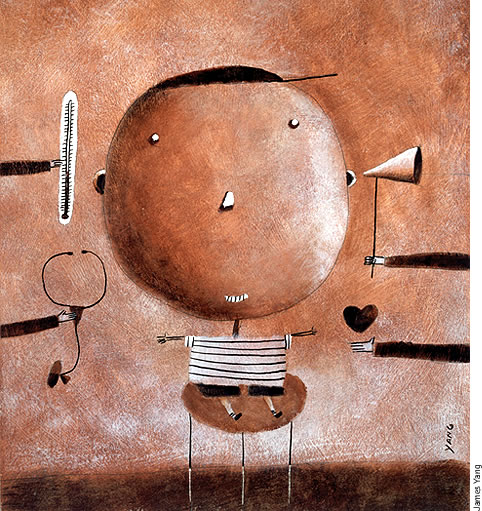
Two recently
published studies on pediatric cardiomyopathy by Steven
E. Lipshultz, M.D., professor and chairman of the Department
of Pediatrics, could change care for children with heart
disease. The study in the journal Pediatrics recommended
the diagnostic evaluation for the disease include a thorough
family history, echocardiograms, and routine blood and
urine testing.
“If a cause is still not found, endomyocardial biopsy
should be considered, and in some cases a skeletal muscle
biopsy
should be done,” says Lipshultz. “We believe
one of the main reasons for the poor outcomes is that in
the majority of affected children we do not know the cause,
so everyone is being treated the same way instead of tailoring
a treatment to fit the cause.”
The study published in The Journal
of the American Medical Association detailed what happens
to children who suffer
from dilated cardiomyopathy, which is the most common
form of the disease and the leading reason for heart
transplants
in children and adults. “This study should help doctors
caring for these patients decide who would benefit most
from cardiac transplantation,” says Lipshultz.
Both studies were based on the Pediatric
Cardiomyopathy Registry, funded by the National Heart,
Lung and Blood
Institute. Lipshultz serves as the principal investigator
of the registry, which was set up to study the causes
and natural history of the disease. |